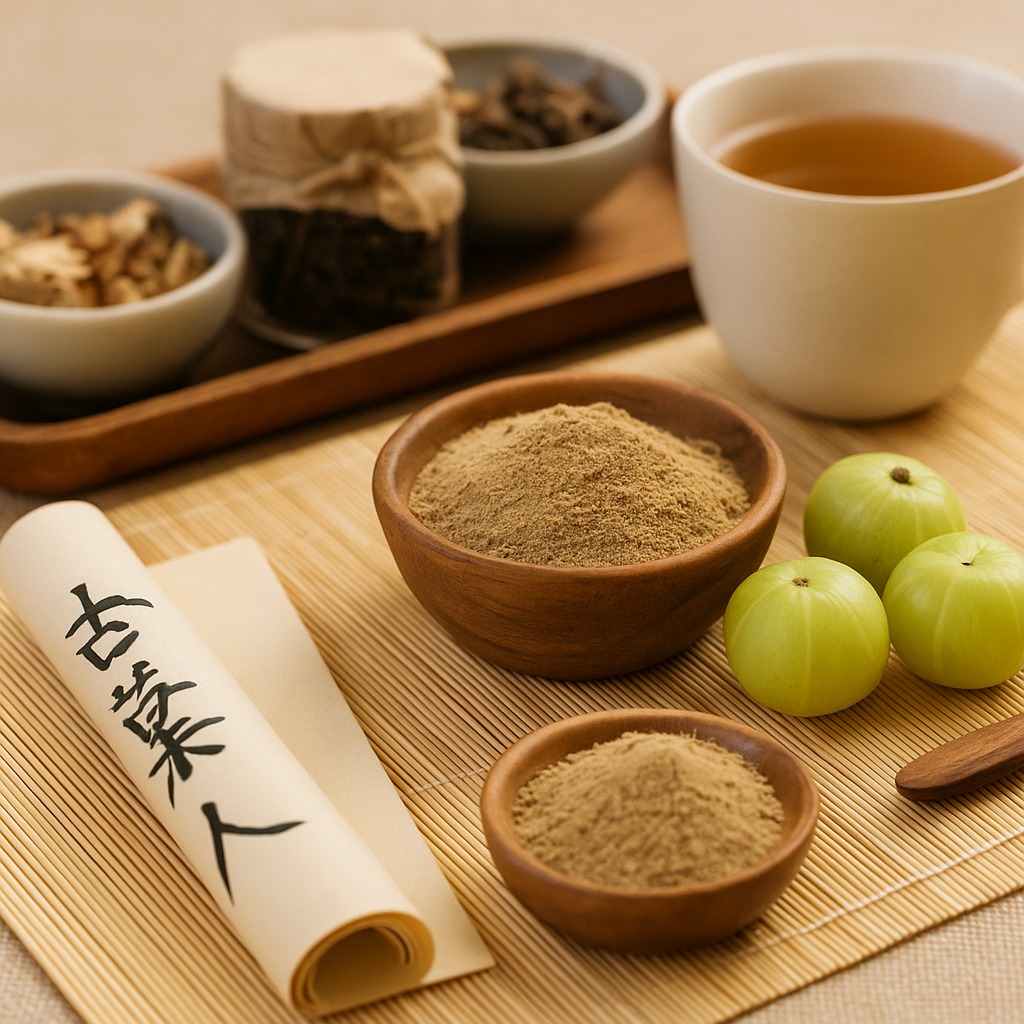Did you know that Amla (Indian Gooseberry), one of Ayurveda’s most powerful ingredients, has also found its way into Japanese Kampo medicine? While Kampo is rooted in Traditional Chinese Medicine (TCM), it has evolved uniquely in Japan—and over time, ingredients like Amla have been integrated for their extraordinary healing potential.
This fascinating crossover of Indian Ayurveda and Japanese Kampo shows how ancient wisdom travels across cultures, creating a bridge of holistic wellness practices.
What is Kampo Medicine?
Kampo is Japan’s traditional system of medicine, adapted from Chinese practices and customized to the Japanese lifestyle. Unlike Ayurveda, which originated in India, Kampo emphasizes balance through specific herbal combinations called “Kampo formulas.” These formulas are still prescribed by Japanese doctors today for various health conditions.
How Amla Became Part of Kampo
Ayurvedic Roots: Amla has been treasured in Ayurveda for centuries as a rasayana (rejuvenator).
Introduction to East Asia: Trade and cultural exchanges brought Amla to East Asian herbal medicine systems.
Adoption in Japan: In Kampo, Amla is valued for its ability to cool the body, improve digestion, and enhance vitality.
Interestingly, Japanese herbal texts mention Amla for its detoxifying and energizing qualities, aligning with Ayurveda’s emphasis on immunity, digestion, and longevity.
Health Benefits of Amla in Kampo Practices
Boosts Energy & Vitality – Kampo uses Amla for restoring stamina and reducing fatigue.
Supports Digestion – Known to balance stomach health and improve nutrient absorption.
Detoxification & Skin Health – Amla tea or decoctions help cleanse the body, improving skin clarity.
Immune Strengthening – Rich in Vitamin C, Amla supports natural defenses against seasonal illnesses.
Longevity & Anti-Aging – In both Ayurveda and Kampo, Amla is considered a secret to healthy aging.
Amla Tea in Kampo Culture
One popular use is Amla-infused herbal tea. Blended with other Kampo herbs like ginger, licorice, or cinnamon, it creates a soothing drink that:
Relieves fatigue
Reduces stress
Improves circulation
Supports daily wellness
Conclusion
The presence of Amla in Japanese Kampo medicine is a beautiful example of how ancient knowledge transcends borders. From Ayurveda’s rasayana to Kampo’s healing formulas, Amla continues to prove itself as a global superfruit that nurtures health, energy, and longevity.
So the next time you sip on a herbal tea or read about Kampo remedies, remember this fun fact—Amla has traveled from Indian roots to Japanese traditions, uniting cultures through wellness.



